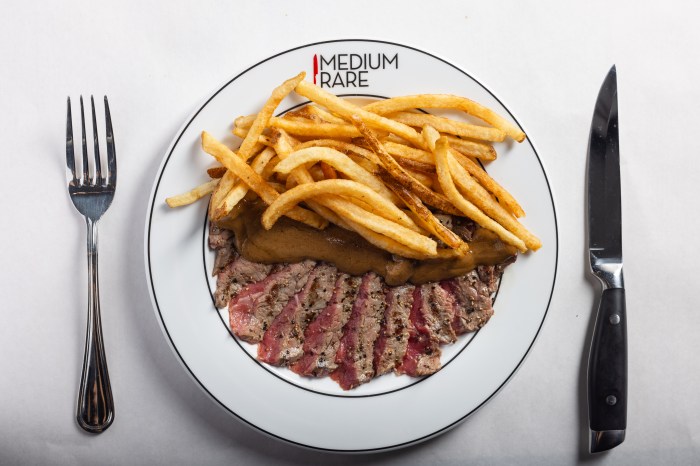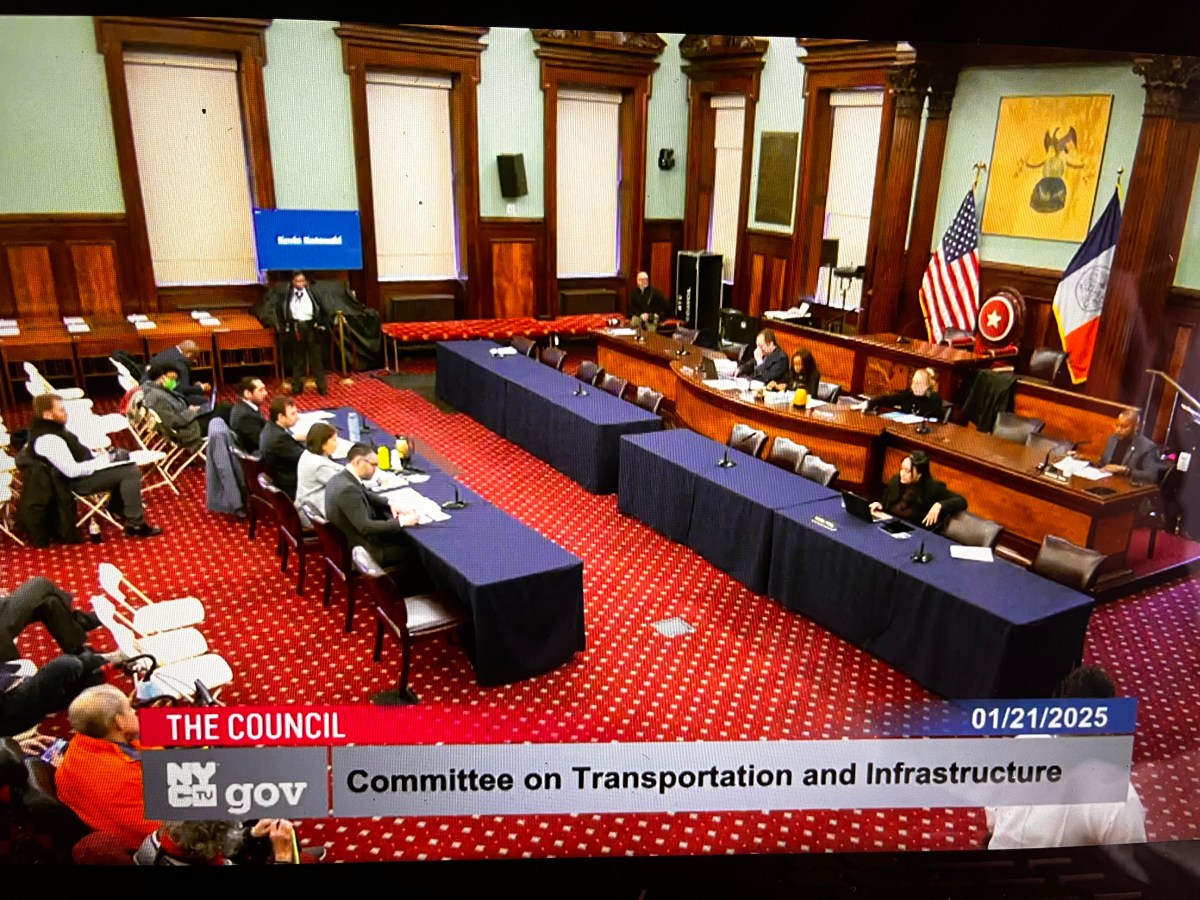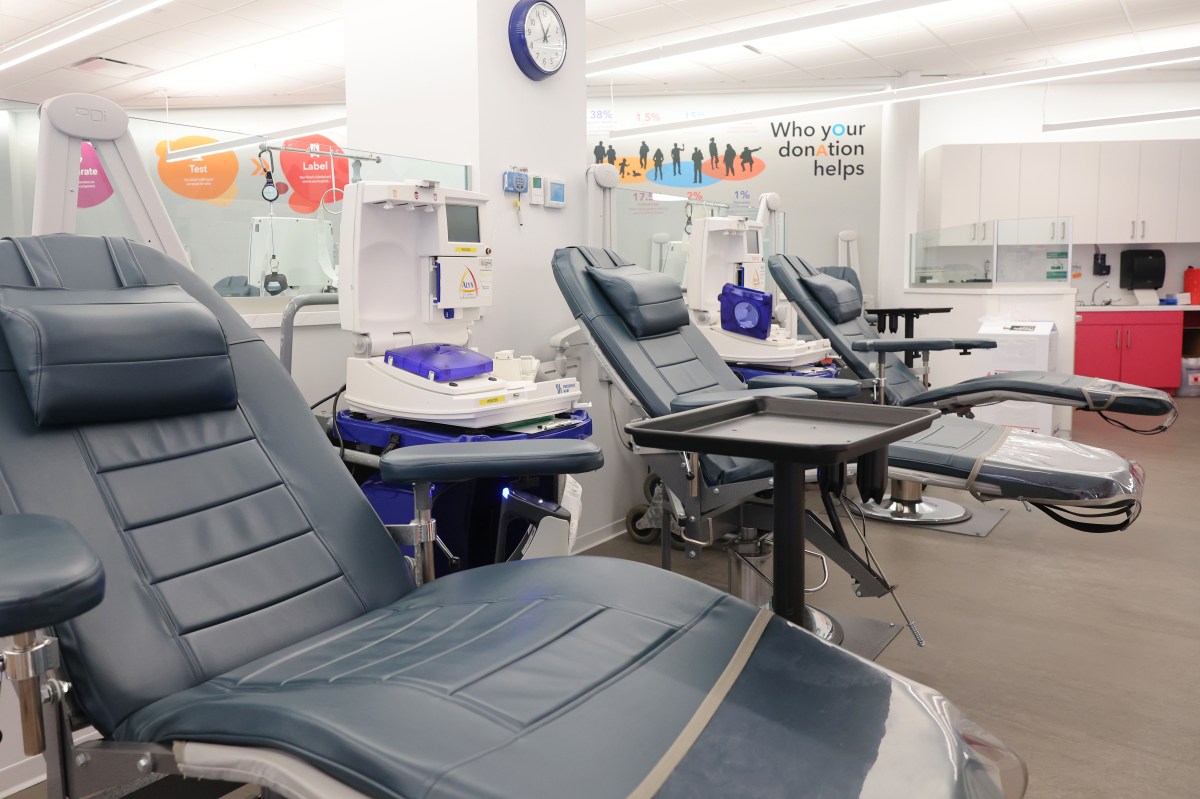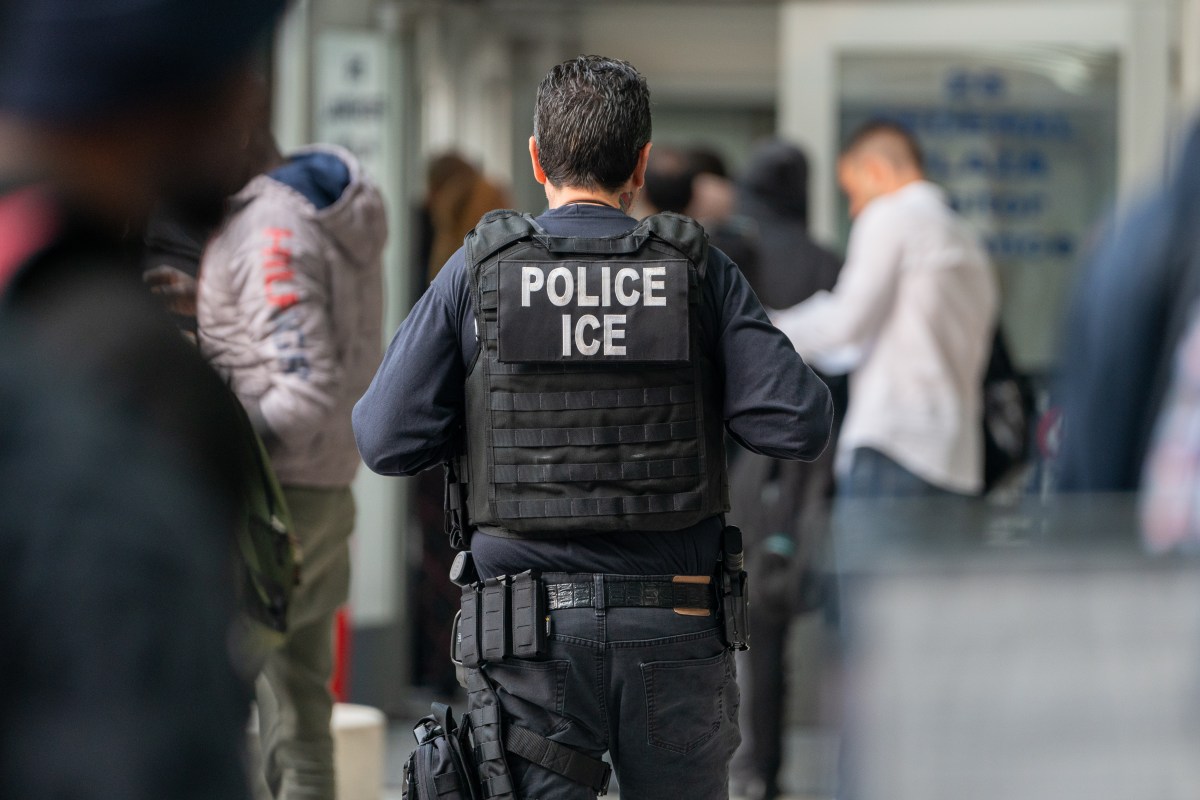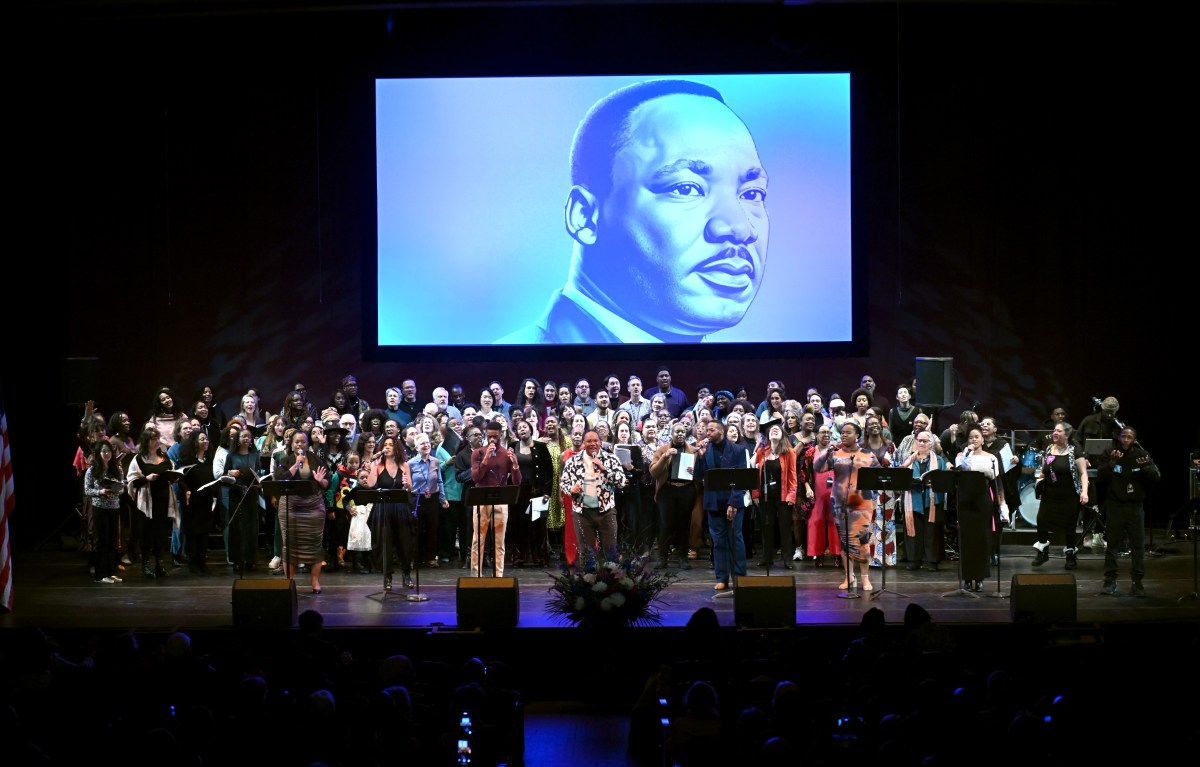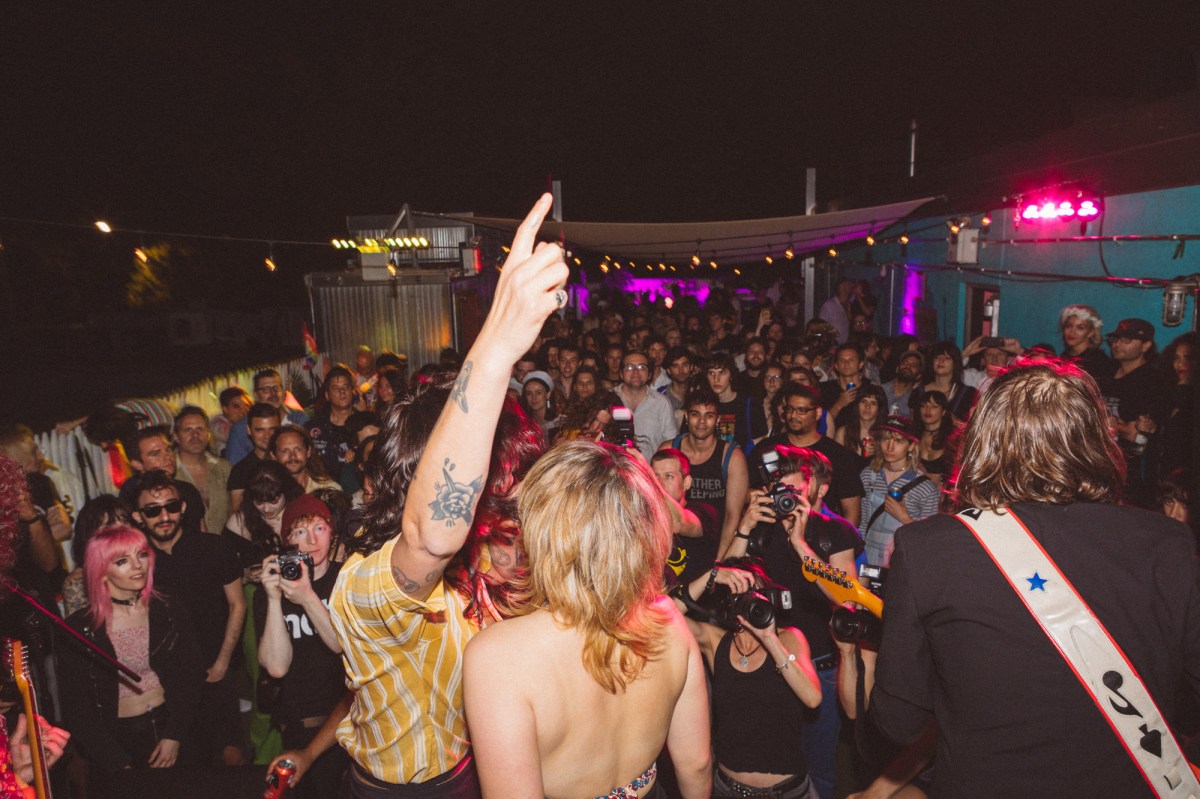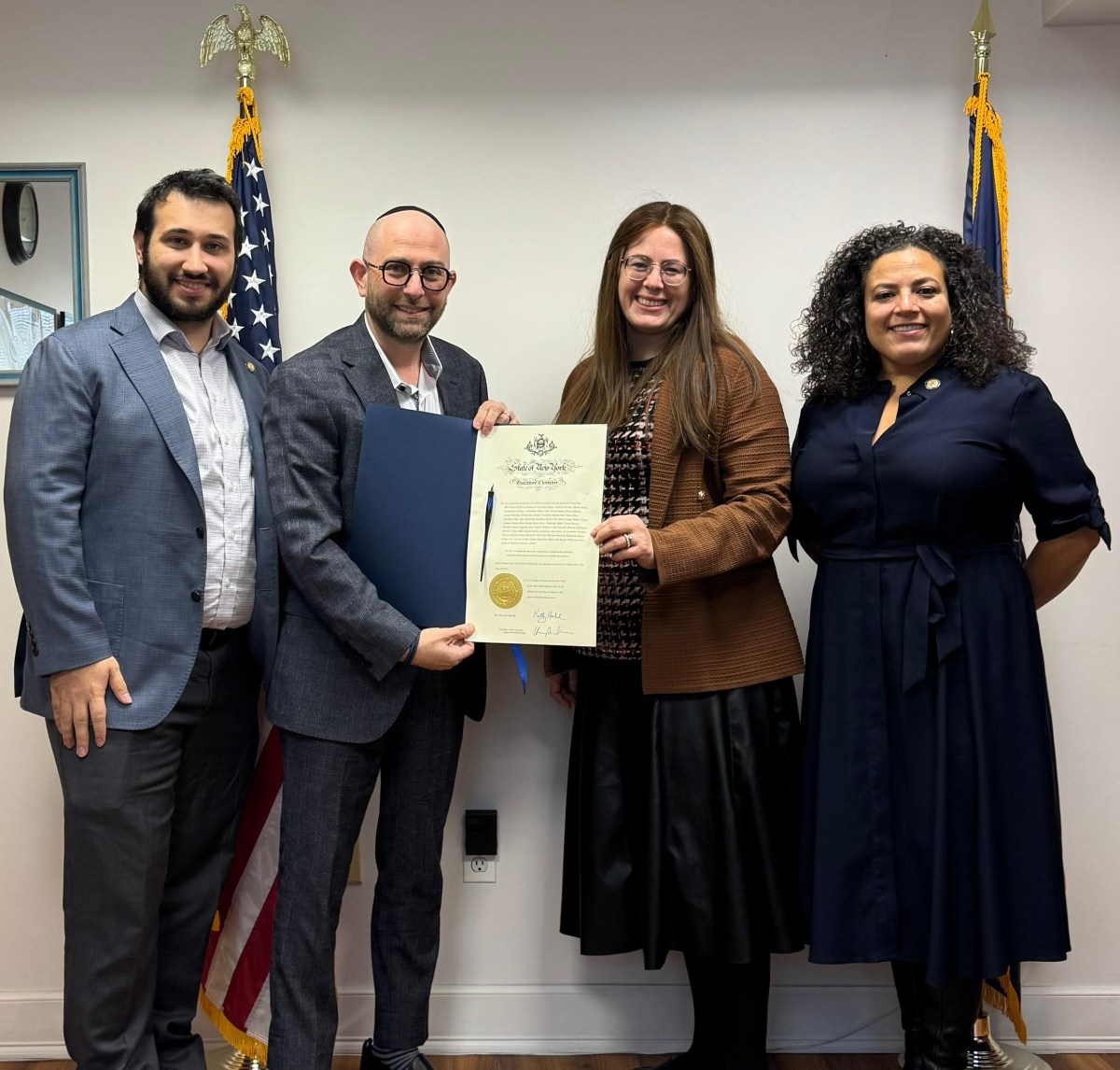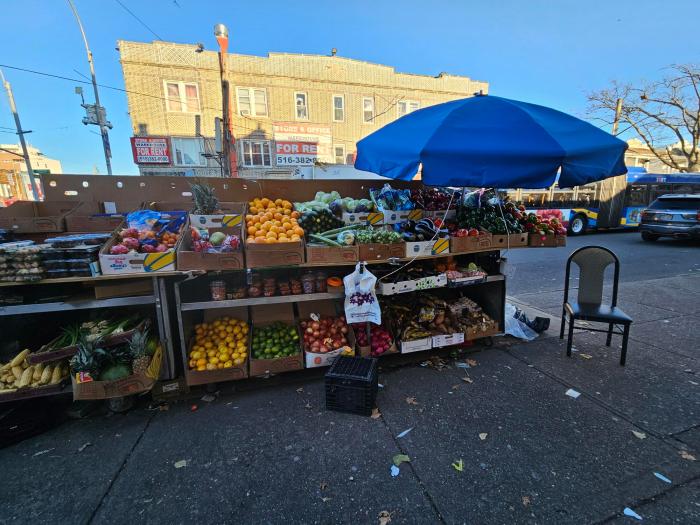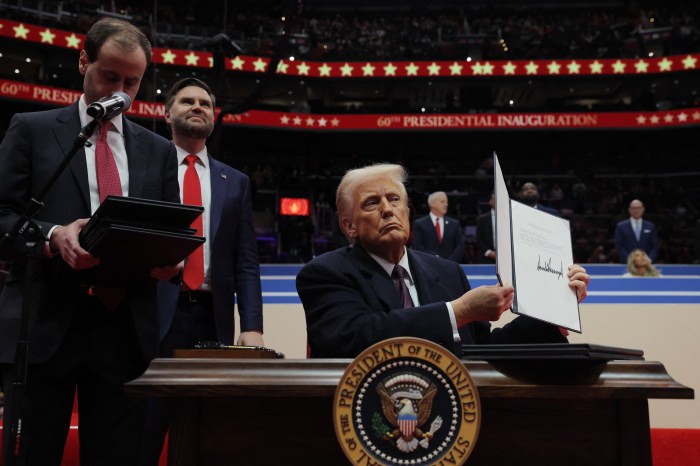For celebrity chef Marcus Samuelsson, immigration isn’t just a hot-button issue dominating the news cycle. It’s a personal one: the 47-year-old Harlem resident was born in Ethiopia and raised by his adoptive family in Sweden, and the comfort food at his neighborhood restaurant, Red Rooster, draws on the cuisine of all three countries he’s called home.
“Aren’t we all immigrants? Unless, you’re Native American,” Samuelsson said in a recent interview about his new TV show, “No Passport Required.”
The six-part series premiering on PBS this Tuesday follows the “Chopped” judge as he travels the country to showcase the cuisines and cultures of different immigrant communities, including the Indo-Guyanese enclave in Richmond Hill, Queens.
“We’re showing real America and it looks vastly diverse, and the food has never been better,” Samuelsson said of the show, the first hour-long episode of which showcases the Arab-American community in Dearborn and Detroit, Michigan. “People want constantly quick answers or a monolithic answer to a very layered culture, so with a show we wanted to be able to tell very complex stories with unique narratives.”
Samuelsson argues that the key to getting over what he sees as a false and hostile narrative in America about immigrants like himself — that they use government resources without giving back, that they remain exclusively loyal to their native countries and that they’re more likely to commit crimes than American citizens — is exploration within the nation’s own borders: “Why can’t we start traveling within our country with the same open eye and be equally interested the way we are when we go to Europe?” Unlike travel and food shows that feature exotic locations, “No Passport Required” keeps its lens trained on the states.
Samuelsson hopes that after watching the Richmond Hill episode, New Yorkers might consider doing some exploring themselves, stopping by Sonny’s or Singh’s for some roti (West Indian unleavened flatbread that’s wrapped around fillings like goat or chickpeas and seasoned with tamarind and pepper sauces) the next time they head to the Rockaways.
amNewYork spoke at length with the chef about his adventures in Queens, the limitations of immigration coverage in the news and the influence the late Anthony Bourdain had on his show:
New York is chock full of immigrant communities you could potentially profile in “No Passport Required.” How did you come to choose the Indo-Guyanese enclave in Queens?
I’ve lived in New York for a long time. I wasn’t familiar with the Indo-Guyanese community in Richmond Hill, so my friend Raymond, he’s the one who told me about it. If you’re Indo-Guyanese, you might be more spiritually Hindu and Indian, but your language is English.
Why is the narrative of inclusion and the ways immigrant communities contribute to American culture and the local economy right now? Do you consider this show a form of political activism?
I don’t think it’s a political statement at all; I think it’s an opportunity to tell what the real America looks like, in a delicious, cultured way. It’s also extremely inspirational, because once you start talking about immigrants, you very often start talking about people who worked very hard, fought really hard to get here and then started their own business.
When you see the whole body of work, the shows start to tell that [immigration is a] very layered [issue]. It could be very different on a human level for each person. Of course, we know that when we talk, but the news cycle doesn’t give a lot of space for that.
One thing I find interesting in the Detroit episode is that you’re not just interested in telling the story of first-generation immigrants, but of their descendants and what it’s like to have a dual identity. Why was it important for you to focus on that?
I wanted again to talk about the complexity [of immigration]: you can be Arab-American, and Muslim or not Muslim, first of all. You can be like Samir, who’s been in the country for 50 years and has a thriving business. Or you can just come straight from Syria, like one family that we showed. Arab-American doesn’t mean just one thing.
What could be more American than to talk about these issues in a detailed way and give it the breadth of an hour that it really deserves?
If you did a “No Passport Required” episode about your own neighborhood, Harlem, what and/or who would you profile?
Oh my God, I would love to do a Harlem episode, and hopefully we can do a second season.
My food festival, Harlem EatUp!, is all about digging into the entrepreneurs and the community at large and highlighting that. El Barrio is where you obviously have great Latin food and the Puerto Rican and Mexican-American communities. But also, to tell the Senegalese story in West Harlem would be really interesting. Or going a little further up to the Heights — the Dominican story would also be really good.
You dedicate the first episode of your show to Anthony Bourdain, and your show seems to build on the legacy of shows like “Parts Unknown” and “No Reservations.” How would you describe his influence on this project?
Tony, for me, was completely a mentor and someone that I dearly miss as a friend, but also loved working with. I asked him tons of stuff regarding this show, because he knew it so much better than me. He brought us closer to the world, to the unknown, so that obviously inspired me a lot. Without him, there wouldn’t be an audience for “No Passport.”
You play a game of cricket with a Queens cricket club in the Richmond Hill episode. How’d you do?
When in Queens, right? You have to play cricket…. I was horrible, but I had fun. In my mind, I was really good.
“No Passport Required,” which is produced by Vox Media, will air on PBS Tuesdays, starting July 10, from 9 to 10 p.m. Viewers can also stream it on PBS.org and the show’s website.
Follow Samuelsson’s trail at these Richmond Hill spots:
Sybil’s Bakery & Restaurant
Try a baked chicken patty and the oxtail at this West Indian restaurant and unofficial community center on Liberty Avenue. Founder Sybil Bernard-Kerrutt opened this location in 1976, and Sybil’s has since expanded to four outposts in New York and Florida, each run by one of her kids. (132-17 Liberty Ave., sybilsliberty.com)
Sonny’s Roti Shop
Trinidadian food is the specialty at this spot under the elevated A train. Order the boneless chicken doubles — street food made with two pieces of fried flat bread — and the roti of your choice. Wash it all down with some Solo soda, a red, sorrel-flavored soft drink. (118-06 Liberty Ave., 718-835-7255)
Singh’s Roti Shop
The original Singh’s opened in 1990, but this second, larger location offers a wider selection of West Indian and Chinese dishes, from curries served with rice or roti to pork lo mein to black pudding. The interior resembles a disco, with a blue neon light lining the ceiling and mirror ball hanging in the center, which makes it the perfect place to host DJs and live music on weekends. (131-14 Liberty Ave., singhsrotishopnyc.com)
Mazi’s Nightclub
Thursdays through Sundays, this club is the local heart of the Caribbean and EDM dance music scene. Take it all in over some bar bites and cocktails, before dancing in the wee hours of the morning. (130-35 91st Ave., mazinightclub.com)



